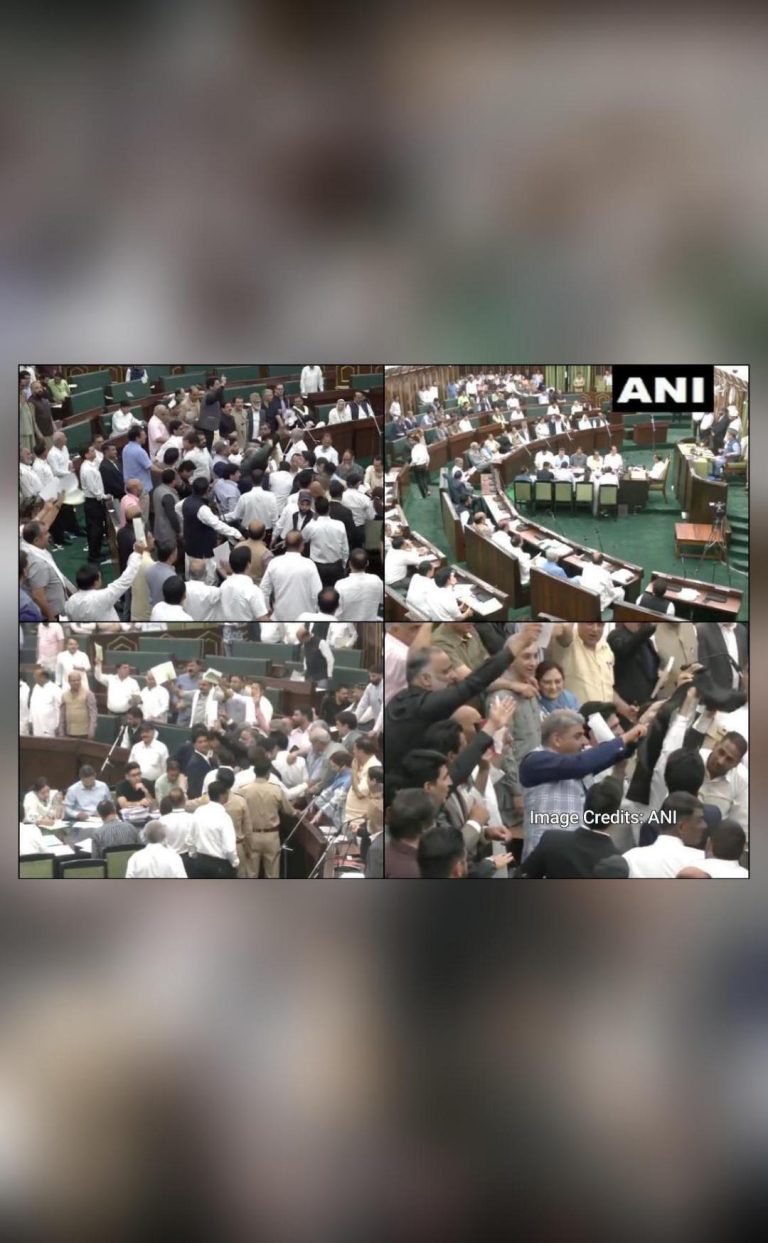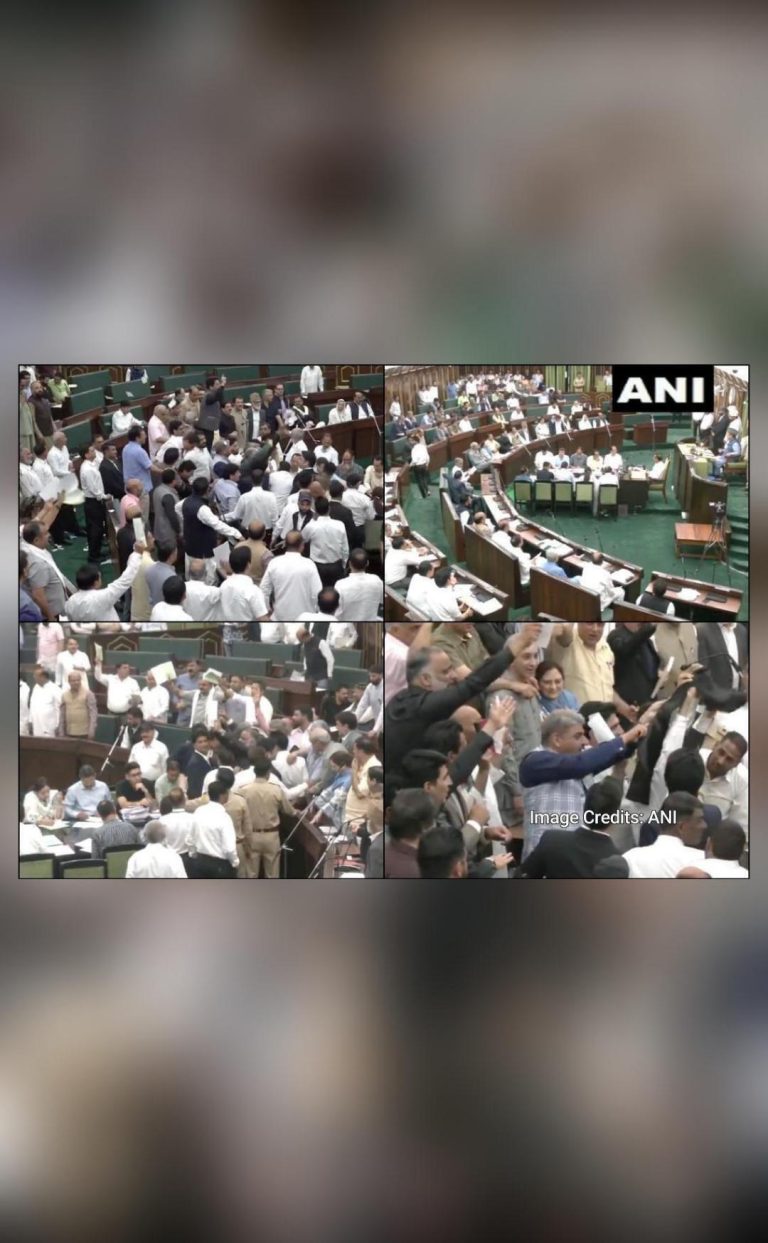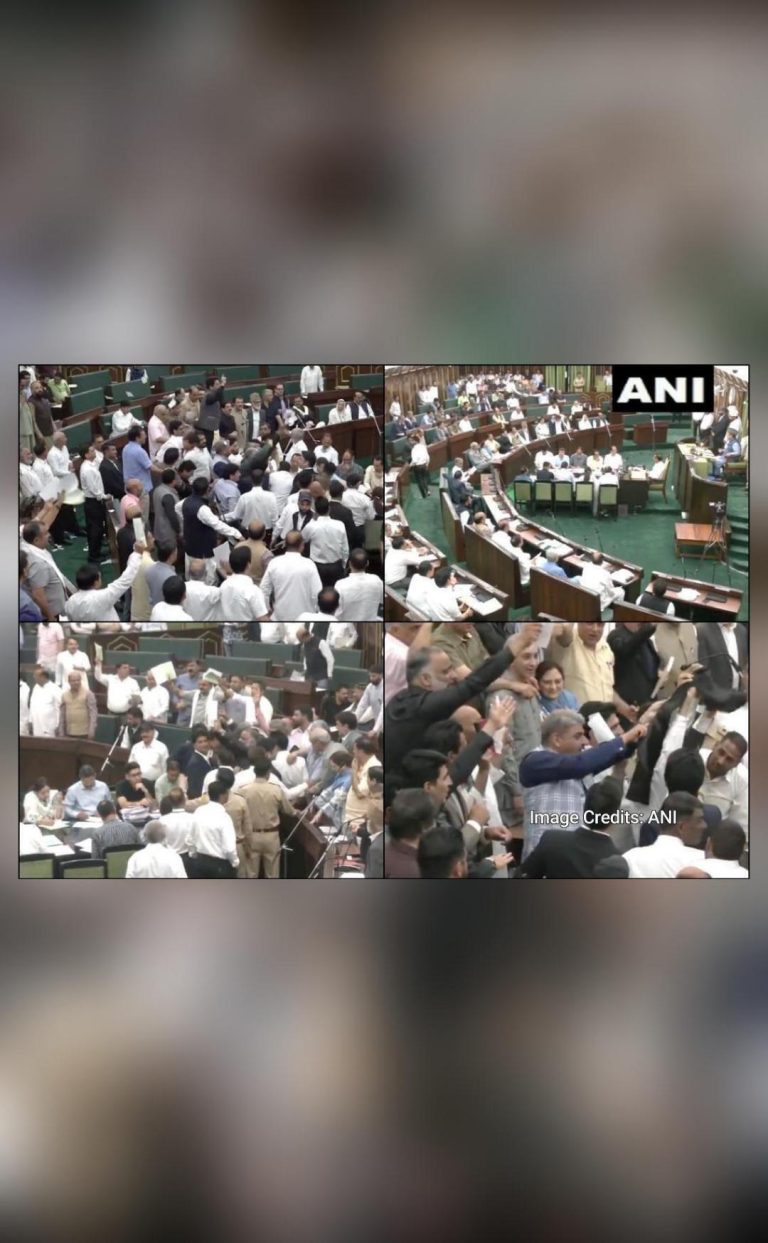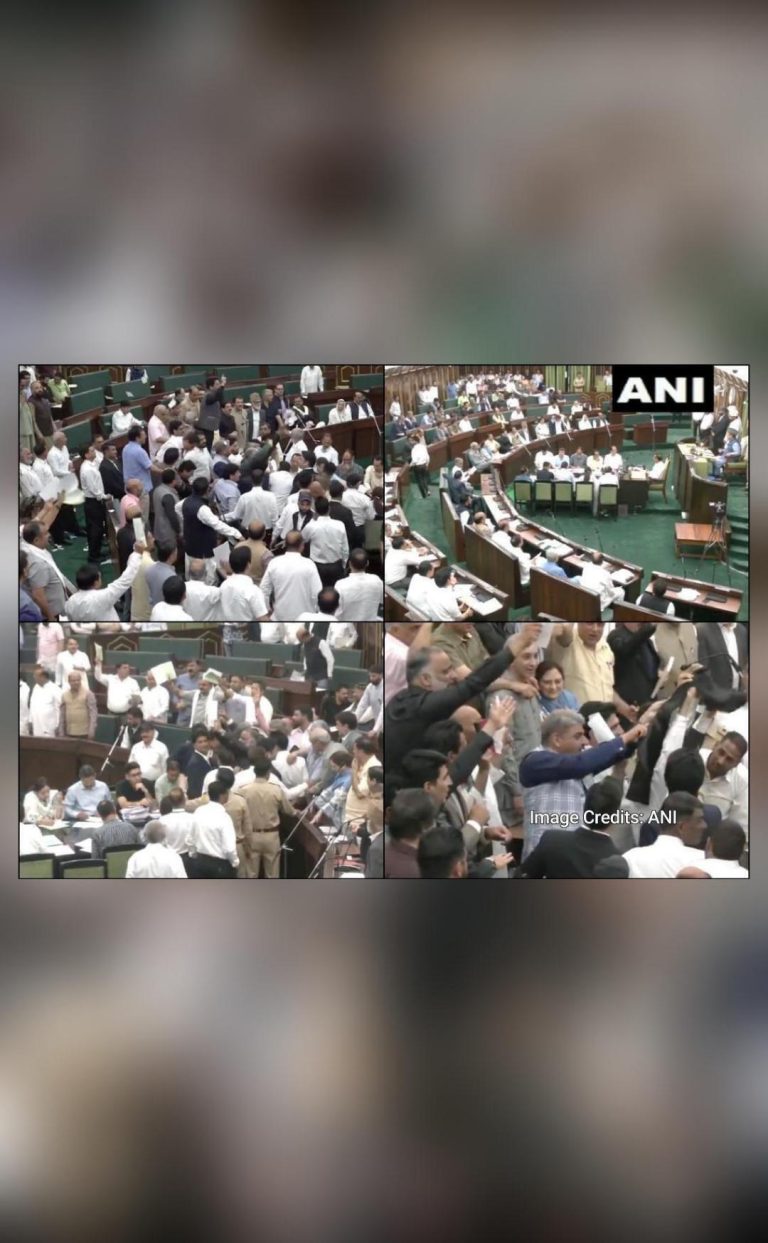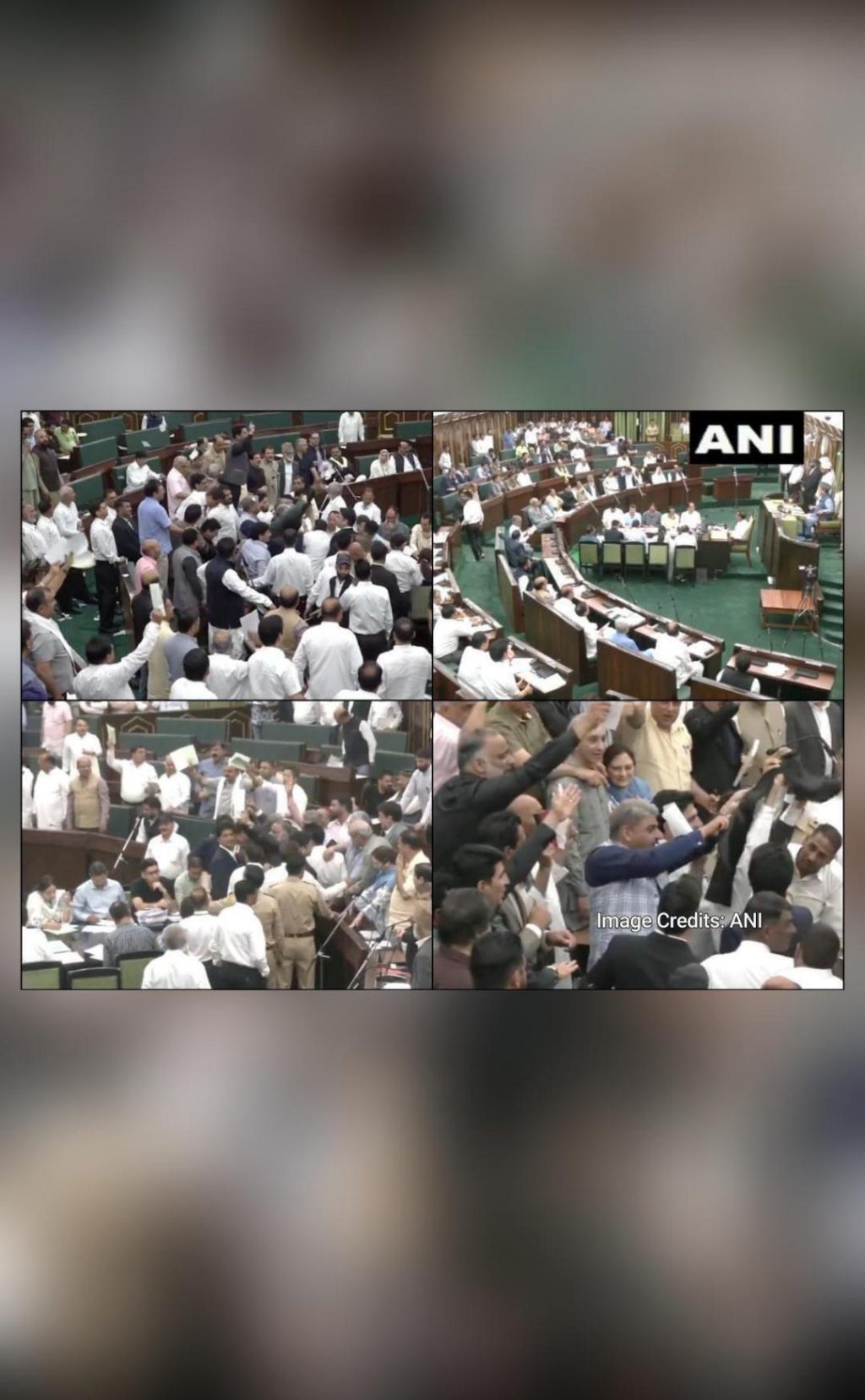
Jammu & Kashmir Assembly Adjourned Amid Uproar Over Waqf Act
The Jammu and Kashmir Assembly witnessed a chaotic scene on Monday as the House was adjourned amid uproar over the Waqf Act. The Speaker of the Assembly, Abdul Rahim Rather, denied an adjournment motion on the Waqf Act, leading to intense protests from several parties and the eventual adjournment of the House.
The National Conference MLAs had moved a motion to adjourn the Question Hour to discuss the Waqf Act, which sparked a heated debate in the Assembly. However, the BJP also protested and demanded that the Question Hour be held as scheduled. The two parties’ differing views led to a standoff, with neither willing to back down.
The Waqf Act, which aims to regulate and manage the management of Waqf properties in Jammu and Kashmir, has been a contentious issue in the state for several months. The National Conference, which has been a strong advocate for the law, claims that it is necessary to ensure the proper management of Waqf properties and to prevent their misuse. However, the BJP has been opposing the law, claiming that it is an attempt to appease minority communities and is not in the best interests of the state.
The BJP’s protests in the Assembly were led by its MLA, Sham Choudhary, who accused the National Conference of trying to push through the law without a proper debate. “We will not allow the Waqf Act to be passed without a proper discussion,” Choudhary said. “The National Conference is trying to bulldoze its way through, but we will not let that happen.”
The National Conference, on the other hand, accused the BJP of trying to derail the law. “The BJP is trying to misuse the Question Hour to prevent a discussion on the Waqf Act,” said National Conference MLA, Mustafa Kamal. “We will not be deterred by their tactics and will continue to fight for the passage of this important law.”
The adjournment of the House brought an end to the chaotic scene, but the debate over the Waqf Act is far from over. The National Conference has vowed to continue its fight for the law, while the BJP has promised to take its protests to the streets.
The Waqf Act is not the only contentious issue in Jammu and Kashmir. The state has been plagued by political instability and infighting among the various parties that have been ruling the state. The National Conference and the PDP have been at loggerheads over the issue of power-sharing, while the BJP has been trying to assert its influence in the state.
The state’s political situation has been further complicated by the ongoing agitation by the Kashmiri Pandits, who are demanding more jobs and security in the state. The Pandits have been protesting for several months, and their agitation has been gaining momentum.
In the midst of all these issues, the Waqf Act has become a focal point of controversy. The National Conference sees it as a necessary measure to ensure the proper management of Waqf properties, while the BJP sees it as an attempt to appease minority communities.
The debate over the Waqf Act is not just about the law itself, but about the broader issues of governance and power-sharing in Jammu and Kashmir. The National Conference and the PDP have been accused of playing power politics, while the BJP has been accused of trying to disrupt the state’s political stability.
In the end, the adjournment of the House may have brought an end to the immediate controversy, but the debate over the Waqf Act is far from over. The National Conference and the BJP will continue to clash over the issue, and the state’s political stability will remain precarious until a resolution is found.
